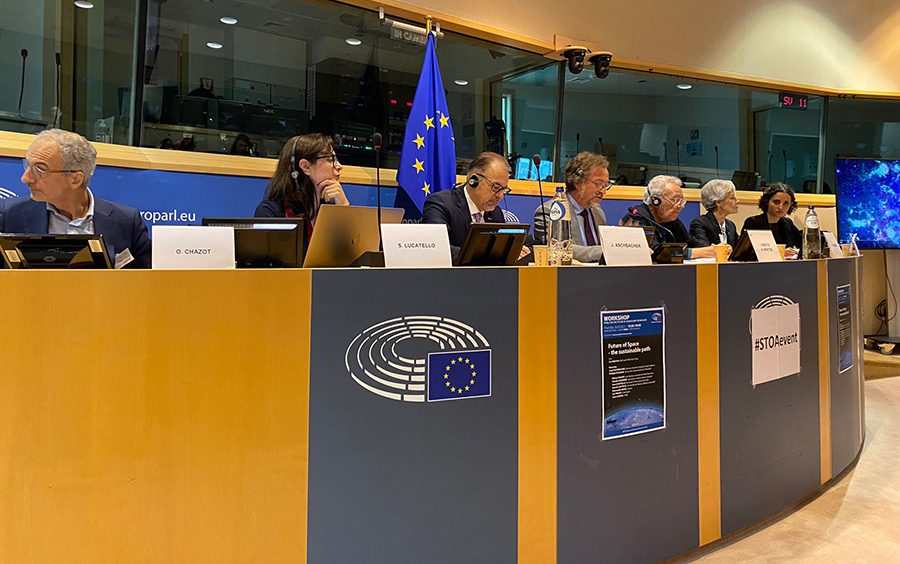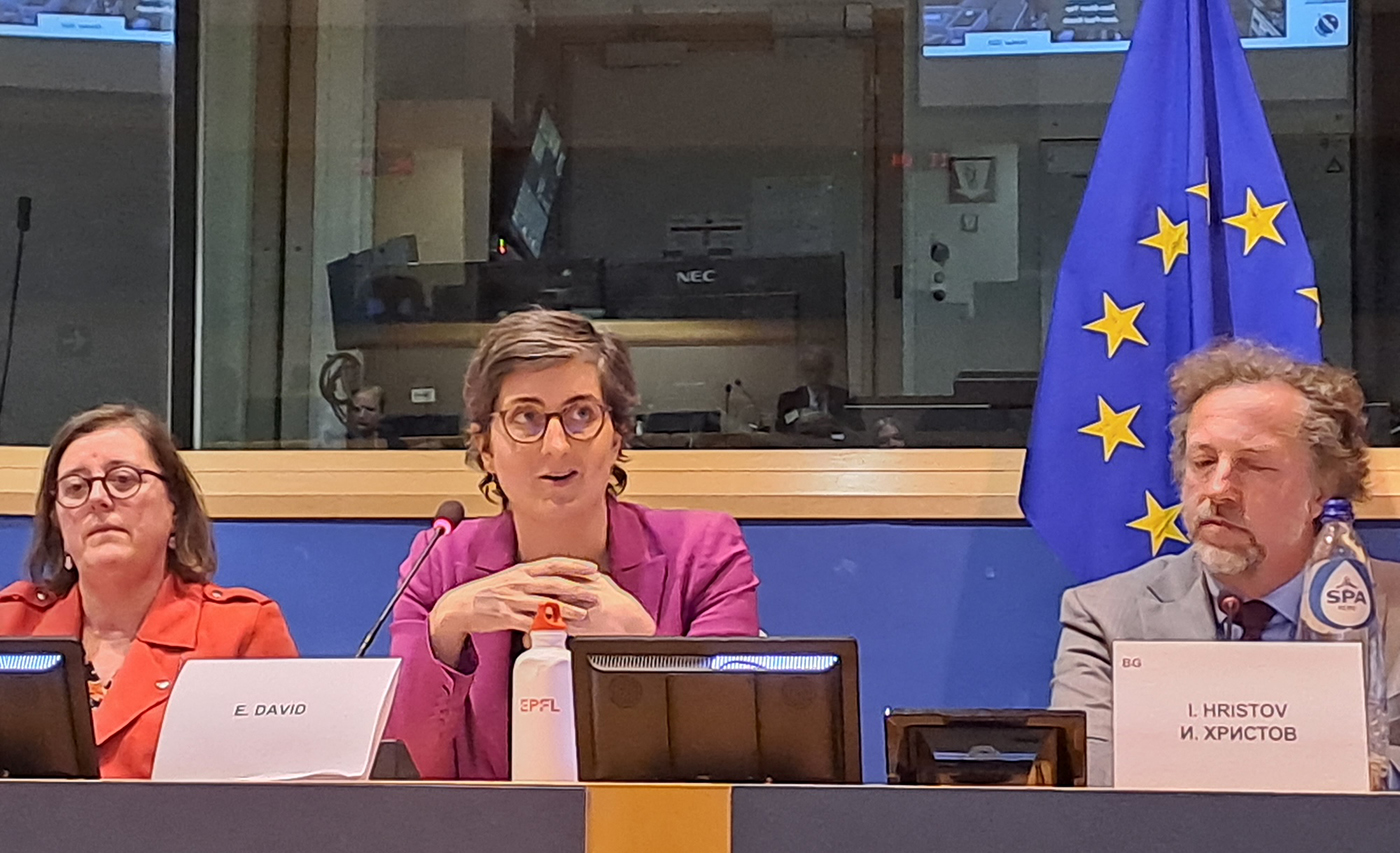30.10.23 - On October 26, eSpace Executive Director and Vice President of the Space Sustainability Rating Association Emmanuelle David went to Brussels to address the European Parliament’s Panel for the Future of Science and Technology (STOA) on “The Future of Space - the Sustainable Path”. She spoke about the different projects EPFL has for ensuring space sustainability, highlighting the Space Sustainability Rating (SSR).
The STOA is the scientific foresight unit for the European Parliament Research Service. The panel included other notable space experts including ESA Director Josef Aschbacher, former EU Commissioner for Research Philippe Busquin, Claudie Haigneré, first women french astronaut and former minister for research and education, and ClearSpace CEO and co-founder Luc Piguet. The event was especially timely, as there is currently a consultation on the EU Space law, so this could inform the MEP and their staff about the status of the research and remaining challenges.

The panel addressed the many different aspects of space sustainability. In the first panel, speakers focused on the topic from the exploration perspective, looking at the impacts of increased space activity on the atmosphere and dark and quiet skies. The second panel looked more at the economic side, with an introduction on the challenges of the economic development of space, the presentation of the SSR tool, and concluded in the presentation of ClearSpace about the emergence of in-orbit services.
A tool for a fair, competitive and sustainable space industry
Emmanuelle David presented the many projects at EPFL led by eSpace that work on the issue of space sustainability. This includes the CleanSpace project, developed over a decade ago initially to deorbit SwissCube, which eventually spun-off from EPFL as the ClearSpace, the company chosen by ESA to recover and deorbit the Vega Secondary Payload Adapter (VESPA). Her presentation also covered the eSpace Sustainable Space Hub, highlighting the project eSpace is leading of a consortium of key European Universities under an ESA program to develop a tool and methodology to perform a Life Cycle assessment of space transportation systems and incorporate them into eco-design practises. She also presented the 2024 continuing education course on space sustainability eSpace is organizing and leading "How to design more sustainable missions".
The main focus of David’s presentation was the Space Sustainability Rating, which was hosted at eSpace until 2023, when it spun-off to become its own association. She explained to the audience how the use of a sustainability label, like SSR, incentivizes sustainable behaviour while ensuring a fair and competitive industry.

“With the Space Sustainability Rating, we act to design and implement sustainable and responsible space missions for the long-term sustainability of the space environment…From discussion with rated companies, we have learned that receiving a rating brings many important advantages. When building their business case to perform a rating, companies have mentioned the following elements – enhancing reputation and trust, competitive advantage, attracting investors, regulatory compliance, risk mitigation, long-term viability, and marketing and public relations. Furthermore, a space sustainability rating can significantly improve satellite operations.”
David also highlighted policy options that could be developed along with the SSR and that are also in line with EU Space Law, such as:
• Financial and economic incentives;
• Support for current and potential regulations;
• Altered procurement processes;
• Public perception; and
• Marketing and environmental, social, and governance-style corporate reporting.
David also outlined two on-going studies about how the SSR, as an example, can go along with policy development for Earth-space sustainability in the future and how national governments can use the SSR while developing their space traffic management framework. The results of these studies are shared in international fora such as the OECD Space Forum, the Paris Peace Forum working groups, the ESA Zero Debris Charter and IAA Space traffic management working group.
For eSpace, it is of the utmost importance to develop frameworks to measure and understand space sustainability and assess the performance of actors, and technologies towards this concept in order to avoid greenwashing.
“We work with industries to develop missions that have more eco-friendly technologies, and also allow policy makers to make informed decisions based on evidence provided by our community,” says David. “This event was the perfect opportunity to do so. It was also particularly interesting that two Swiss actors were present, showing how crucial it is both for Switzerland itself and for the European Union that Switzerland is able to participate again in the Horizon Europe program.”